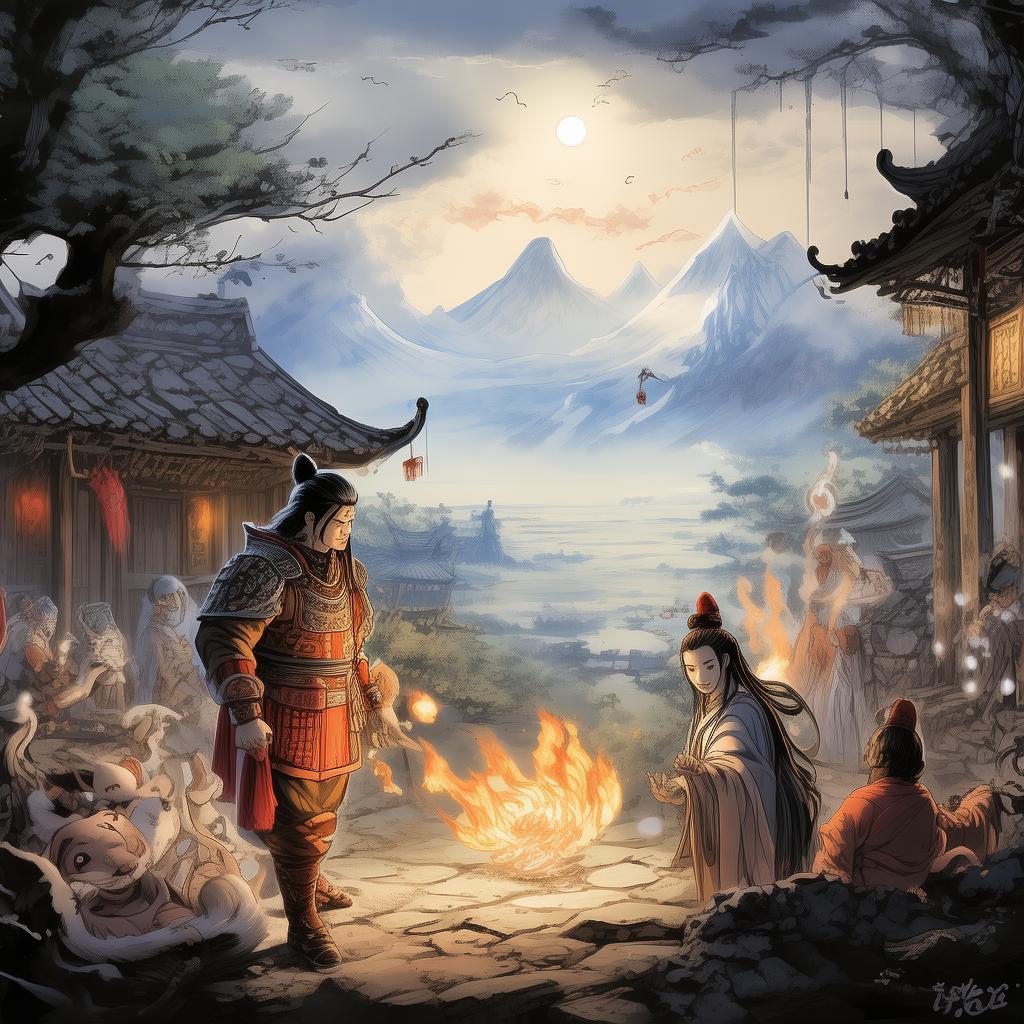The Melody of the Ancestors: A Tale of Echoes and Redemption
In the heart of the continent, where the savannah meets the mountains, there lay a village named Ngoma, known for its rich tapestry of sounds. The people of Ngoma were musicians at heart, their lives woven into the fabric of the land, their spirits attuned to the symphony of nature. The village was a repository of ancient songs, passed down through generations, each melody a story of the ancestors, a testament to the trials and triumphs of the past.
Amara, a young woman with a voice like the wind that whispers through the acacia trees, was the latest in a long line of Ngoma's musicians. She was known throughout the village for her ability to sing the most complex of rhythms, her voice a beacon of hope and joy. Yet, beneath the surface of her vibrant life, there lay a shadow. The village was suffering from a curse, a silence that had fallen over Ngoma, leaving the people unable to sing or play their instruments.
The elders spoke of the curse as a result of a great betrayal, a time when the village's music was used for dark purposes. The ancestors were angry, and their spirits had withdrawn, leaving the village in a state of eternal silence. Amara's grandmother, the last of the village's great singers, had whispered to her in her final moments that the only way to break the curse was to find the melody of the ancestors, a song that had been lost to time.
Determined to save her village, Amara embarked on a journey that would take her deep into the heart of the continent. She traveled through the savannah, where the hyenas sang their eerie lullabies, and up the mountains, where the baboons played their own symphony on the rocks. Along the way, she encountered spirits of the ancestors, each one a guardian of a melody that held the key to breaking the curse.
The first melody she encountered was a song of the elephants, deep and resonant, a reminder of the strength and resilience of the land. The second was a tune of the giraffes, long and graceful, symbolizing the elegance of the people of Ngoma. But it was the third melody, a hauntingly beautiful piece of the lions, that Amara knew was the one she sought. It was a song of power, of courage, and of the eternal struggle for survival.
As Amara sang the lion's melody, the spirits of the ancestors began to stir. The wind picked up, carrying the song to the skies, and the people of Ngoma felt the vibration of the music in their bones. Slowly, the silence began to lift, and the first notes of a song emerged from the village. It was a blend of all the melodies Amara had collected, a symphony of the continent's heart.

The people of Ngoma gathered in the central square, where the ancestors had once danced. Amara stood before them, her voice a beacon of hope. She sang the song of the ancestors, and as the last note echoed through the village, the curse was broken. The people of Ngoma could sing again, their voices a testament to the power of music and the enduring spirit of their ancestors.
In the days that followed, Ngoma thrived once more. The people celebrated, their music filling the air with joy and hope. Amara realized that the melody of the ancestors was not just a song, but a reminder of the interconnectedness of all life. It was a reminder that the past, present, and future were all woven together in the fabric of the continent's heart.
And so, the tale of Amara and the melody of the ancestors became a legend, a story that would be told for generations to come. It was a story of redemption, of the power of music to heal, and of the eternal bond between the living and the spirits of the past.
✨ Original Statement ✨
All articles published on this website (including but not limited to text, images, videos, and other content) are original or authorized for reposting and are protected by relevant laws. Without the explicit written permission of this website, no individual or organization may copy, modify, repost, or use the content for commercial purposes.
If you need to quote or cooperate, please contact this site for authorization. We reserve the right to pursue legal responsibility for any unauthorized use.
Hereby declared.









